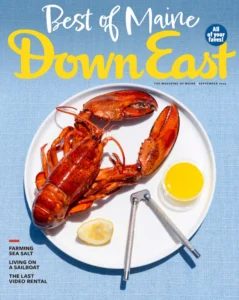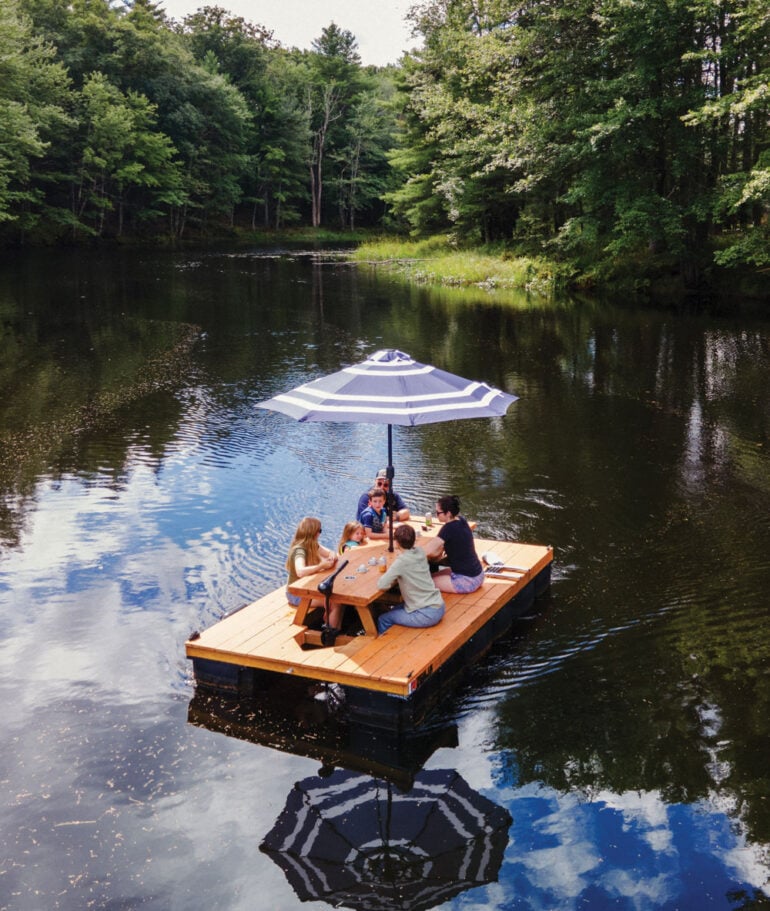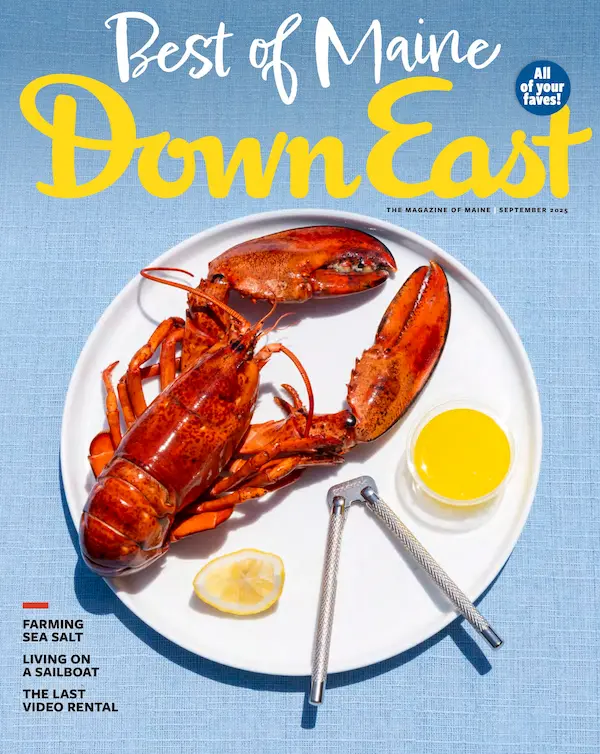By Sara Anne Donnelly
Photos by Nicole Wolf
From our June 2025 issue
As a boy, Lon Cameron spent summers with his grandparents in Caribou, cooking up projects. With his grandmother, he crafted ornaments and potholders and made ice cream by combining the ingredients in coffee cans they rolled down a hill. With his grandfather, an amateur inventor whose creations included a DIY airboat and swamp buggy, plus a motorized thresher for removing fiddlehead husks, he blew up homemade volcanoes and cobbled together flimsy dams in a backyard creek. “It was pretty cool to be in a place that fostered that creative energy,” Cameron recalls. “I never felt like I had restrictions. I would just follow my curiosity, put a thing together, and try to make it work.”
His curiosity eventually led him to learn carpentry and build a pair of tiny houses he rented out. Later, he launched a company crafting furniture and décor out of pallets and other reclaimed materials for restaurants and businesses. In 2019, another idea struck. He’d ripped out a sagging wooden dock on the property he shared with his wife, Tyler Kidder, on Winthrop’s Wilson Pond and salvaged four large plastic floats. Poking around online for ideas on what to do with them, he saw images of “boats” assembled from picnic tables set atop plastic food-grade barrels and equipped with gas-powered outboard motors. “I decided there had to be a better version of that,” Cameron says.
He built an eight-foot-long cedar picnic table on a pressure-treated-lumber frame with extra-wide benches to accommodate the floats he screwed to their undersides, attached a quiet electric trolling motor given to him by his father-in-law, and stuck a beach umbrella through a hole in the tabletop. By evening, the craft was ready for its maiden voyage. It was not smooth sailing. “With such a broad base on the water, we couldn’t adequately steer,” Cameron says. “We just kept going around in circles. Tyler was swearing. It wasn’t fun.”
Over the next few days, Cameron threw himself into improving the prototype. He added a centerboard to steady the craft, cupholders in the tabletop, and a retractable swim ladder. The upgrade was a hit that summer. Curious boaters approached Cameron and Kidder every time they took the float out on the pond, and friends encouraged Cameron to market his invention. In 2021, he sold the prototype on Facebook Marketplace and began taking requests for made-to-order floats in eight- and 12-foot lengths (the latter featuring broader, wraparound benches). Pandemic social distancing was in full effect, and the novel pleasure craft met the moment. Cameron, who works full-time as a physician assistant, has since sold some 50 floats, which go for several thousand dollars each.
In 2023, Cameron and Kidder moved to a farmhouse on 98 acres fronting Litchfield’s Mill Pond. The previous owners ran a wildlife-rehabilitation center there, and Cameron set up a workshop in the bright, if a bit musky, first-floor room where the birds of prey had been kept. This year, he plans to contract with an off-site builder so he can expand production on his latest float models, which have electric motors with lighter, longer-lasting lithium batteries, fishing-rod holders, and bench storage for gear and the day’s catch. “The float emphasizes the quiet nature of lakes and ponds,” Cameron says. “When you’re sitting on it with your feet in the water, having a whisper-level conversation, no fumes flying in your face, everybody’s got snacks and drinks — it’s such a different way to enjoy the water.”










